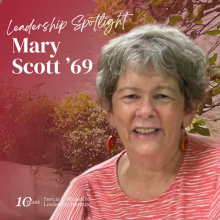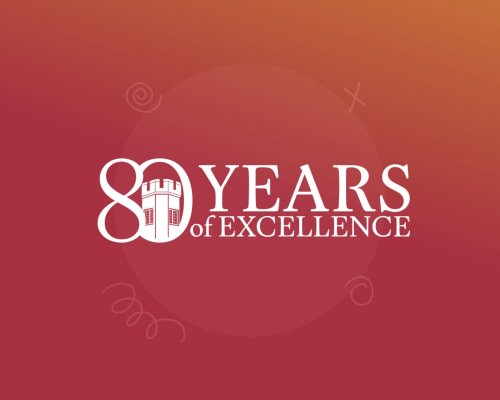
Mary Scott ’69 forged an impressive career as a teacher and advocate for children and adults with disabilities.
Following, Mary shares her career story and Maryvale’s impact on her leadership development.
The first thing to know about me is that I am happily and busily retired! I am not, nor have ever been, the CEO of a Fortune 500 company, a managing partner at a prestigious law firm, or a NASA astrophysicist. I have, instead, had 50-plus years of quiet leadership in Maryland, advocating for people with disabilities.
Since middle school, I have been interested in learning about people with challenges - Helen Keller, FDR, Karen Killilea, and others. People with polio were of particular interest as the polio epidemic was front and center when I was in grade school. My father had a dear friend who spent her adult life in an iron lung after contracting polio in her twenties. I was both fascinated and horrified by her fate and was drawn to learning more about the lives of people with disabilities.
At Maryvale, I was on the debate team and the Gray Towers newspaper staff. These experiences, as well as having terrific English teachers, taught me how to write and speak with intent. Perhaps my passion for the underserved began in our theology classes, perhaps as a child of the 1960s, perhaps as a way of living guided by the Beatitudes. A field trip to the Rosewood Center, an institution for children and adults with developmental disabilities, exposed me to the horrors of institutional care. In my senior year, I chose "the history of mental institutions" as the theme for my term paper. I did not know at the time that my path had been set.
I studied special education at Notre Dame University Maryland and was lucky enough to work with a professor who was using unconventional and progressive treatments for children with learning disabilities. My first job was teaching in Baltimore City, followed by several years as a hospital teacher, a stint in a child abuse and neglect program, and then as the director of an early intervention program. After taking a career pause to raise my two daughters, one of whom has a developmental disability, I became the chair of the Baltimore County Special Education Advisory Committee. I was a longtime member of the Baltimore County Commission on Disabilities, a member of several disability advisory committees, and a speaker on many disabilities-related topics. Currently, I am the president of the board of By Their Side, a nonprofit that provides advocacy for people with developmental disabilities whose parents are no longer able to advocate for them.
My fondest memories of Maryvale are sneaking through the convent on the third floor of the castle on a late-night unauthorized "tour," forming a folk group with my friends, and dissecting a fetal pig in Sister Regina's Biology 101 class. The background of those memories was an environment that supported all of us to speak up, take risks, and stretch both our intellect and our imagination.
My advice to current students: Don't worry about your path, it will reveal itself. The way you look at the world will change a dozen times while you are in college. Take advantage now of opportunities to practice critical thinking and public speaking - two talents that will serve you well in any profession. Be ready to take risks. I knew nothing about little kids when I started the early intervention program! I surrounded myself with the people who did, and together, we built a beautiful program.
This life offers so many ways to lead both in the public arena and in the quieter arenas of school, community, church, and service organizations. (Did I mention that I was an abysmal failure as a Girl Scout cookie mother? But I was a darn good troop leader.) If you embrace your Maryvale education, you will be prepared to assume leadership roles, small or large, public or private, in whatever way you feel comfortable and competent.
























